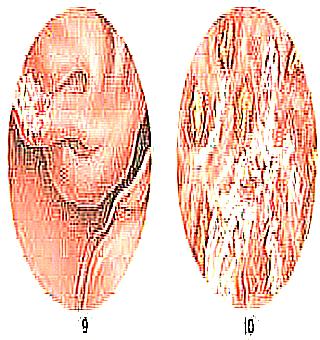Home >
Erectile Dysfunction >
Chronic cystitis symptoms and treatment
Chronic cystitis - symptoms and treatment

Chronic cystitis is a recurrent inflammation in the bladder wall.
In 90% of cases, chronic cystitis affects women. This is due to the anatomical features of the structure of the female genitourinary system: the close location of the external opening of the urethra (urethra) to the vagina and anus, the short length and wide opening of the urethra create the preconditions for the introduction of bacteria by the ascending path 2.
A statistically significant association of age with the development of the disease has not been established. Women suffer from cystitis both at a young age, when sexual activity is highest, and at premenopausal and menopausal age due to hormonal changes and the presence of concomitant diseases.
More often, women experience acute cystitis, during their life 20-25% of women suffer from it, every third of them has a relapse of the disease within a year, and in 10% the acute form becomes chronic recurrent 14.
Chronic cystitis can be infectious and non-infectious in nature. In most cases, a disease of infectious etiology occurs. It can be caused by pathogenic and conditionally pathogenic microflora. Conditionally pathogenic microflora is represented by viruses, protozoa, fungi and bacteria, which are constantly present on the mucous membranes of a person, in the intestines and on the skin. Normally, they do not harm the body, but under certain conditions, the number of opportunistic microorganisms can increase, which will cause inflammation. The most common opportunistic pathogens are E. coli (Escherichia coli), saprophytic staphylococcus (Staphylococcus saprophyticus). A significant less common causative agent is Klebsiella spp. or Proteus mirabilis. It is possible to detect mycelium of fungi of the genus Candida
Pathogenic bacteria normally should not be in the body. Once on the mucous membranes, they begin to multiply rapidly, starting pathological processes. Pathogens - Chlamidia trachomatis, Ureaplasma urealiticum, N. gonorrhoeae, M. Hominis, T. Vaginalis and some others. The pathogen first enters the urethra and then the bladder. This can happen during intercourse, due to poor personal hygiene and disruption of the normal biocenosis in the vagina.
The development of chronic cystitis is possible due to neurogenic bladder disorders that can occur after spinal injuries. At the same time, the sensitivity to the accumulation of urine in the bladder decreases or disappears altogether. That is, the bladder does not feel when it is full. In this case, microorganisms can multiply in stagnant urine and lead to chronic inflammation of the bladder wall.
The cause of chronic non-infectious cystitis is most often the painful bladder syndrome, or interstitial cystitis. This is an aseptic (non-infectious) inflammation of the bladder wall, the exact cause of which is unknown. There are various factors that provoke this condition: hormonal changes, operations on the pelvic organs, autoimmune diseases, etc. Most likely, the process is associated with an autoimmune reaction of the body, in which the human immune system perceives body tissues as foreign and begins to attack them. But there may be a connection with previously transferred infectious cystitis, stress, pelvic surgery (removal of the uterus, ovaries), as this disrupts blood flow in the bladder area 2.
Non-infectious cystitis can also be caused by certain medications, such as chemotherapy drugs, as they can irritate the lining of the bladder. Chronic cystitis is also possible with prolonged exposure to the walls of the bladder of a foreign body, such as a urinary catheter or stones.
Much less often, chronic cystitis occurs in men. The cause of the disease can be an adenoma of the prostate gland. An enlarged prostate gland compresses the urethra and interferes with normal urination, which leads to the accumulation of stagnant urine. Such an environment is favorable for the reproduction of bacteria.
Another cause of chronic cystitis in men may be the presence of stones in the bladder, as the stones injure its wall. In rare cases, the transition of inflammation to the bladder is possible with severe chronic prostatitis.
Chronic cystitis is extremely rare in children. The reason may be anatomical anomalies in the development of the genitourinary system, immunosuppression (immune suppression), severe concomitant diseases, early onset of sexual activity.
The parasitic disease schistosomiasis can be attributed to rare causes of chronic cystitis. Schistosoma (parasitic worm) larva penetrates into the submucosal layer of the bladder, which causes irritation and inflammation of the bladder wall, characteristic of severe chronic cystitis 3.
A predisposing factor to the development of cystitis and its recurrence will be the presence of concomitant diseases, such as diabetes mellitus or other diseases that lead to a decrease in the activity of the immune system 14. External factors such as hypothermia, stress, hormonal changes, overwork, alcohol consumption also have a determining meaning. In recent years, it has been proven that chronic cystitis often occurs with leukoplakia of the bladder. Leukoplakia is the replacement of normal epithelium with squamous epithelium with the formation of keratinized areas15.



























